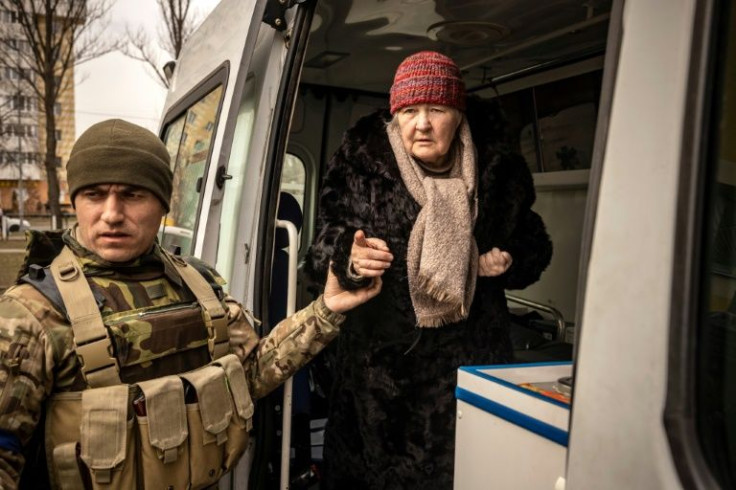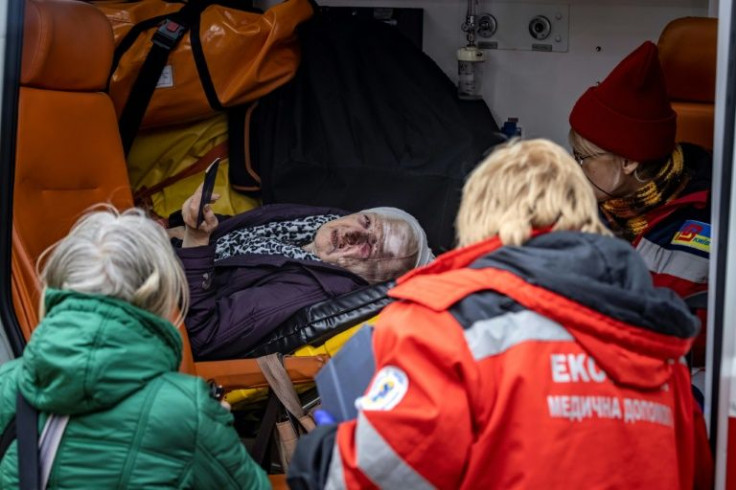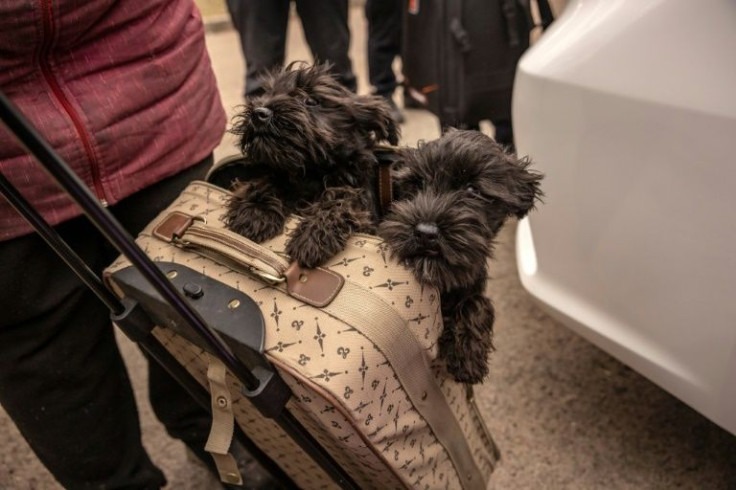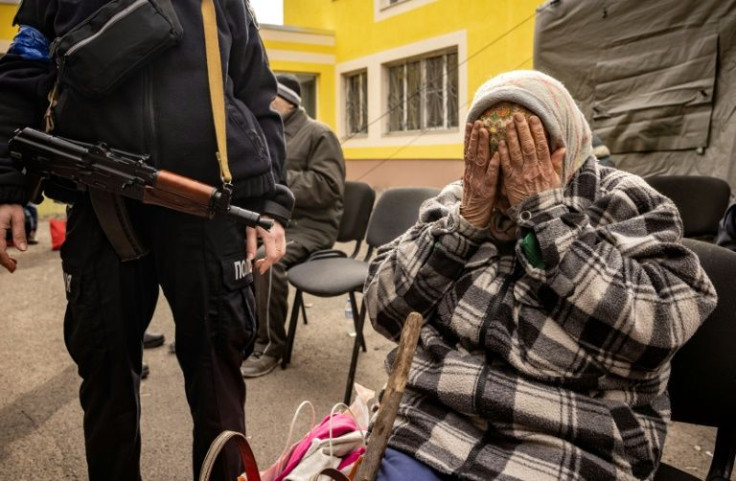Poet Of Irpin Flees Still Dangerous Strategic Town
When the shelling became so intense she thought she would die, 72-year-old Tamara Osypchuk wrote poetry to calm herself in her apartment in the devastated Ukrainian town of Irpin.
"The explosions were very strong. Like a volcano is exploding, as if the earth explodes," she said as she rested on a chair at an evacuation centre on the outskirts of Kyiv.
"I write poems and when there are explosions I feel great inspiration."

Dressed in a long black fur coat and woolly hat, Osypchuk was among a couple of dozen people seen escaping from Irpin on Saturday, as a flood of civilians fleeing in recent days slowed to a trickle.
A day after Russia signalled that it had scaled down the aims of its invasion, the bouts shelling that rocked the area earlier in the week had also reduced in intensity, AFP reporters said.
Moscow's announcement that its "main goal" was now the eastern Donbas area has sparked speculation that it will turn its attention from Kyiv as its month-long bid to encircle the capital stalls.

US President Joe Biden, however, has said he is "not sure" that Moscow has indeed changed strategy.
Ukraine meanwhile says that it has pushed back Moscow's forces from much of Irpin, a commuter town whose strategic place on the northwestern route into Kyiv has turned into the frontline.

After asking for a phone to call her daughter in Britain, Osypchuk describes how the fighting "demolished" the corner of the apartment block where she lives on the ninth floor.
The pensioner only left because a friend's pastor called the volunteer ambulances that have been braving Russian shell fire since just after the start of the war to get people out of Irpin.

"I thought that I would die here and not leave Ukraine. I love Ukraine very much, I have travelled half the world, but neither in England, nor in the Czech Republic, nor in Poland, nor in Italy do I feel like here."
Emergency workers evacuating people say that the situation remains dangerous inside Irpin, with fighting ongoing and their vehicles sometimes coming under fire.
The numbers of people fleeing have diminished because almost everyone who is able to leave the shattered town has now done so, emergency workers said, as they tended to the new arrivals.
But still they come. The elderly woman with a bloody, bandaged head wound brought out of an ambulance on a stretcher.
The anxious-looking girl of around ten years with her mother, who clutches a plastic cup of tea with trembling hands and cries.
The exhausted middle-aged woman carrying a pink plastic pet box, walking unsteadily along a long dirt road under a rain-threatening clouds.
Almost every family fleeing Irpin seems to bring a pet of some kind, with many having stayed as long as they did because they did not know how to get their animals out.
Charity workers make several journeys with a pick up truck, returning with civilians huddled in the back along with their pets.
Svitlana Rogutska left Irpin with ten dogs -- including seven Scottie puppies stuffed into a suitcase -- and a cat.
She said that despite weeks of violence rained down by Russian forces she "waited for volunteers" who had come to help her bring out her pets.
"The dogs are ok," she says.
© Copyright AFP 2024. All rights reserved.





















